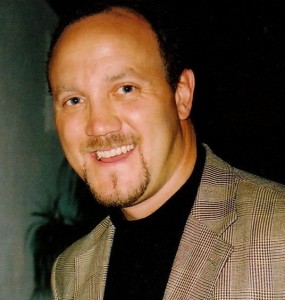Five Questions for John Brennan
I’m sure I could grill John Brennan for hours. But after a lot of thought, here are the five questions I believe most important that should be asked of him Today.
1) Do you plan to continue lying to Americans?
You have made a number of demonstrable lies to the American people, particularly regarding the drone program and the Osama bin Laden raid. Most egregiously in 2011, you claimed “there hasn’t been a single collateral death” in almost a year from drone strikes; when challenged, you revised that by saying, “the U.S. government has not found credible evidence of collateral deaths,” even in spite of a particularly egregious case of civilian deaths just months earlier. On what basis did you make these assertions? What definition of civilian were you using in each assertion? (More background)
In addition, in a speech purportedly offering transparency on the drone program, you falsely suggested we know the identities of all people targeted by drones. Why did you choose to misrepresent the kind of intelligence we use in some strikes?
2) What was the intelligence supporting the first attempt to kill Anwar al-Awlaki?
The US government’s first attempt to kill Anwar al-Awlaki with a drone strike was December 24, 2009. WikiLeaks cables make it clear that Awlaki was a primary target of that strike, not just intended collateral damage. Yet the Webster report makes clear that on that day — that is, until the Underwear Bomber attempt the next day — the Intelligence Community did not consider Awlaki to be operational. Thus, the strike seems to have been approved before he fulfilled the criteria of the white paper released the other day, which authorizes the targeting of senior operational leaders of groups like AQAP. What was the legal basis for targeting this American citizen at a time when the IC did not believe him to be operational? (More background)
3) Will your close friendships with Saudis cloud your focus on the US interest?
In a fawning profile the other day, Daniel Klaidman nevertheless laid out the following points:
- You considered Yemen to be a “domestic conflict.”
- You opposed signature strikes in the country.
- You nevertheless approved signature strikes in Yemen because of personal entreaties from people you know from when you were stationed on the Arabian peninsula in the 1990s.
In addition, recent reports have confirmed that the drone strike that killed Anwar al-Awlaki was launched from Saudi territory.
Were the personal entreaties you responded to from Yemenis or Saudis (or both)?
What role did the Saudis have in the Awlaki strike? Did they have an operational role?
As someone with such close ties to liaison sources, how have you and will you manage to prioritize the interests of the United States over the interests of friends you have from two decades ago?
To what degree is your intelligence sharing — especially with the Saudis — a stovepipe that creates the same risks of intelligence failures that got us into the Iraq War? (More background)
4) What role did you have in Bush’s illegal wiretap program?
The joint Inspector General report on the illegal wiretap program reported that entities you directed — the Terrorist Threat Integration Center in 2003 and 2004, and the National Counterterrorism Center in 2004 and 2005 — conducted the threat assessments for the program.
What role did you have, as the head of these entities, in the illegal wiretapping of Americans? To what extent did you know the program violated FISA? What role did you have in counseling Obama to give telecoms and other contractors immunity under the program? What influence did you have in DOJ decisions regarding suits about the illegal program, in particular the al-Haramain case that was thrown out even after the charity had proved it had been illegally wiretapped? Did you play any role in decisions to investigate and prosecute whistleblowers about this and other programs, notably Thomas Drake? (More background)
5) Did you help CIA bypass prohibitions on spying domestically with the NYPD intelligence (and other) programs?
In your additional prehearing questions, you admit to knowing about CIA’s role in setting up an intelligence program that profiled Muslims in New York City. What was your role in setting up the program? As someone with key oversight over personnel matters at the time, did you arrange Larry Sanchez’ temporary duty at the NYPD or CIA training for NYPD detectives?
Have you been involved in any similar effort to use CIA resources to conduct domestic spying on communities of faith? You said the CIA provides (among other things) expertise to local groups spying on Americans. How is this not a violation of the prohibition on CIA spying on Americans? (More background)
Update: I realized that I have left out a caveat in Brennan’s drone lies — he was talking in the previous year. I’ve fixed that.

